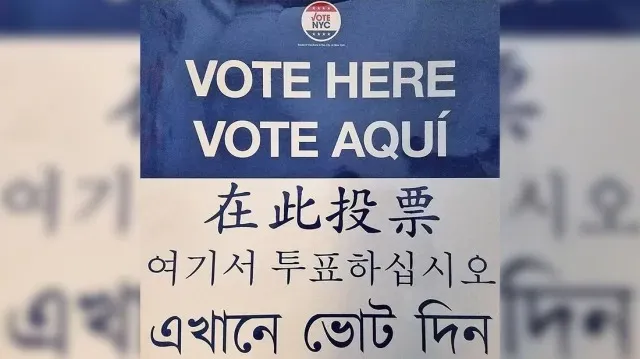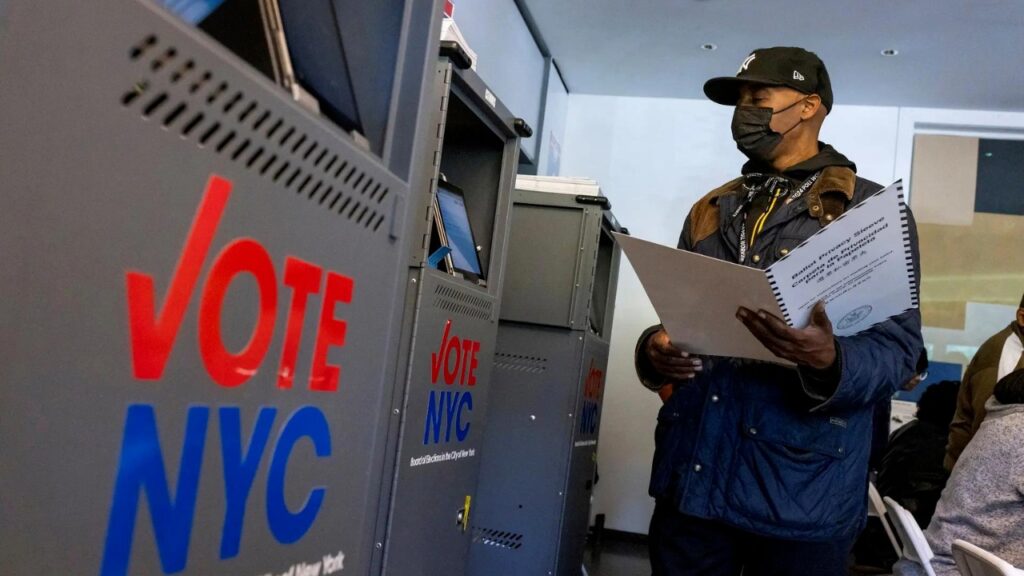More than 200 languages are spoken in New York City, highlighting its status as America’s melting pot, according to the Department of City Planning. However, during the upcoming US presidential elections, only four languages will appear on the ballot papers alongside English, with Bengali being the sole representative of Indian languages.

Bengali Language Support in Elections
As the US prepares to elect its 47th President, Micheal J. Ryan, Executive Director of the NYC Board of Elections, stated, “We are required to service four other languages besides English: Chinese, Spanish, Korean, and Bengali as the Asian language.” This inclusion is crucial for ensuring that Bengali-speaking voters have the necessary support at polling stations.
Subhshesh, a sales agent in Times Square with Bengali heritage, expressed his satisfaction that his father in Queens will have access to language assistance when voting. He noted, “People like me know English, but many in our community prefer their native language. I’m sure my father will appreciate having a Bengali ballot.”
Legal Mandate for Language Assistance
The presence of Bengali on ballot papers is not merely a courtesy; it is a legal requirement. New York City is mandated to provide voting materials in Bengali at designated polling places. This requirement encompasses not just the ballot papers but also other essential voting materials, ensuring that Bengali-speaking voters receive comprehensive language support.
Ryan explained the reasoning behind including Bengali in the ballot options, stating, “There was a lawsuit about language access. The settlement required a certain population density to have an Asian Indian language, and negotiations led to the choice of Bengali.”
Historical Context of Bengali Ballots
The South Asian community in Queens first saw translated ballots in Bengali in 2013. This addition followed a federal government directive to provide language assistance to South Asian minorities, as mandated by the 1965 Voting Rights Act.

Bengali-speaking individuals primarily come from countries like India and Bangladesh. While this demographic does not encompass all languages in the region, the inclusion of Bengali is expected to enhance voter participation within this community.
Impact on the Indian Community
Dr. Avinash Gupta, President of the Federation of Indian Associations, emphasised the significance of this initiative. He stated, “It will help the Indian population to go out and vote. That’s how we can get our voices heard. We are a sizable population, and it’s encouraging to see how Indians actively participate in elections.”
The provision of Bengali-language ballots is a vital step in promoting inclusivity and encouraging civic engagement among New York’s diverse communities.
